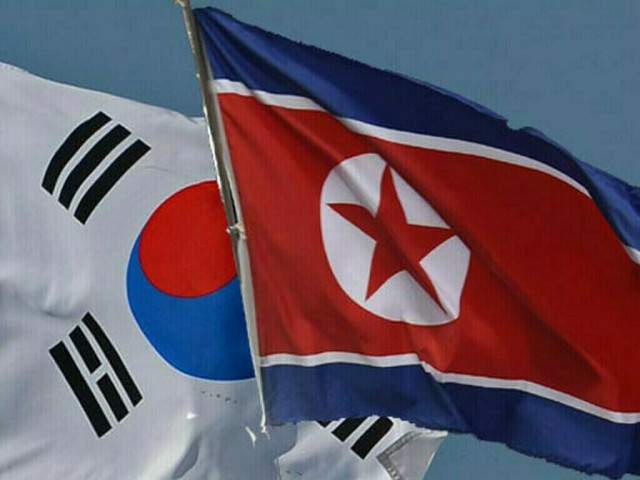South Korea reports second day of GPS interference from North, affecting civilian transport
North Korea accused of GPS jamming, a week after testing what it claims is its most advanced solid-fuel ICBM

North Korea carried out GPS jamming operations over Friday and Saturday, affecting multiple ships and dozens of civilian aircraft in South Korea, according to Seoul’s military.
The allegations of jamming come a week after North Korea test-fired what it claimed to be its most advanced solid-fuel ICBM, a launch that followed accusations that Pyongyang had sent soldiers to assist Russia in Ukraine.
In response, South Korea fired its own ballistic missile into the sea on Friday as a show of force, underlining its readiness to counter “any North Korean provocations.”
“North Korea conducted GPS jamming provocations in Haeju and Kaesong yesterday and today,” South Korea’s Joint Chiefs of Staff said in a statement on Saturday, adding that “several vessels and dozens of civilian aircraft were experiencing some operational disruptions.”
Seoul’s military issued warnings to ships and aircraft operating in the Yellow Sea, advising caution against further interference.
“We strongly urge North Korea to immediately cease its GPS provocations and warn that it will be held responsible for any subsequent issues arising from this,” the statement added.
Rising tensions on the Korean peninsula
Relations between North and South Korea have reached one of their lowest points in years. The North has carried out a series of ballistic missile launches, violating UN sanctions, and since May, has launched balloons loaded with waste material into the South, claiming this is in retaliation for anti-Pyongyang leaflets being sent across the border by activists.
In May, North Korea had also reportedly attempted to jam GPS signals, though the South Korean military said at that time it did not disrupt military operations.
During Friday’s drill, South Korea launched a Hyunmoo surface-to-surface short-range missile into the West Sea. According to Seoul’s military, the drill was intended to demonstrate its “strong resolve to firmly respond” to any potential threats from North Korea. The Hyunmoo missile is a critical component of South Korea’s ‘Kill Chain’ preemptive strike system, which authorises Seoul to launch a preemptive attack if there are signs of an imminent North Korean assault.
Experts warn of 'real risk'
Analysts warn that GPS jamming by North Korea could increase the risk of serious incidents on the Korean peninsula.
“It remains unclear whether there is an intention to divert the world’s attention from troop deployments, instil psychological insecurity among residents in the South, or respond to Friday’s drills,” Yang Moo-jin, president of the University of North Korean Studies in Seoul, told AFP. “However, GPS jamming attacks pose a real risk of serious incidents, including potential aircraft accidents in the worst-case scenario.”
Ahn Chan-il, a defector-turned-researcher who runs the World Institute for North Korea Studies, suggested that North Korea might be attempting to “shield their own communications and intelligence exchanges during critical military operations” within the country and potentially beyond.
North Korea’s growing involvement in Ukraine
North Korea has become a prominent supporter of Russia’s actions in Ukraine. Both South Korea and Western nations have long alleged that Pyongyang supplies artillery shells and missiles to Moscow.
According to recent intelligence reports, North Korea has sent around 10,000 troops to Russia, raising concerns in Seoul, Kyiv, and Western capitals over Pyongyang’s deepening involvement in the conflict.
Seoul, a close security ally of the United States, said last month that the presence of North Korean troops in Europe would represent a significant escalation. Although South Korea, a major arms producer, has a policy against providing weapons to countries in conflict, President Yoon Suk Yeol indicated this week that Seoul may reconsider this stance and potentially send arms to Ukraine in response to North Korea’s military support of Moscow.
On Friday, Seoul’s presidential office reported a surge in cyber attacks by pro-Russian hacking groups targeting South Korea, coinciding with North Korea’s troop deployment to assist Russia in Ukraine.



















COMMENTS
Comments are moderated and generally will be posted if they are on-topic and not abusive.
For more information, please see our Comments FAQ